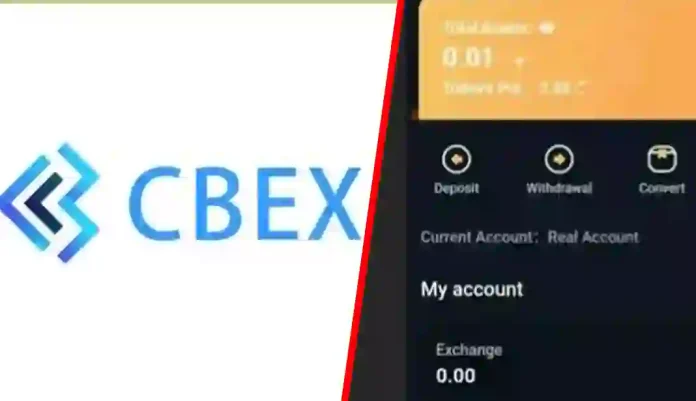A wave of panic has swept across social media as Nigerian investors express dismay over the sudden collapse of CBEX, a digital asset trading platform, which reportedly siphoned over ₦1.3 trillion from users’ wallets.
The platform suffered a major crash on Monday, leading to the disappearance of funds from users’ wallets. In the aftermath, CBEX deactivated its Telegram channels and announced a halt in withdrawals. In a controversial move, the platform offered users an option to recover $2,000 by undergoing a $200 verification process, or $1,000 for a $100 verification fee.
During an X (formerly Twitter) Space session hosted by Trending X, a cryptocurrency and security analyst, Taiwo Owolabi, offered insight into the situation. According to Owolabi, transaction records indicate that the stolen funds were funneled into a TRX wallet address (yourself:TDqSquXBgUCLYvYC4XZgrprLK589dkhSCf). He revealed that a total of $847 million worth of USDT had been moved so far—an amount he says is likely to grow.
Owolabi emphasized that investors’ funds have effectively vanished, pointing out that CBEX was never a licensed entity. He claimed the platform was deliberately designed with weak architecture, mimicking the appearance of legitimate trading platforms like ByBit, to mislead unsuspecting investors.
“They built a fragile website with the intention of later claiming a security breach,” he said. “When you fund your CBEX account, your payment is directed to a TRX wallet, which is immediately cleared. Those funds are then converted from TRX to USDT, and subsequently to ETH. Therefore, what users see on their dashboards are merely numbers — not actual balances.”
He added, “All those AI trading activities are fabricated. The so-called trading gains are just numerical illusions. When you initiate a withdrawal, you’re essentially being paid with another user’s deposit.”
Owolabi further explained that the system was built to exploit user greed. “You’ll likely reinvest your returns, and possibly even add more funds, thinking the platform is legitimate. That same money is then used to pay someone else, perpetuating the cycle. The more people talk about it, the more new users join — classic Ponzi behavior.”
Understanding CBEX
CBEX positioned itself as a digital trading platform promising a 100% Return on Investment (ROI) within 30 days. The company marketed itself as offering a secure and transparent space for digital transactions. However, recent developments have cast serious doubt on these claims, with mounting allegations of fraud and deceptive operational practices.
One key red flag was the use of falsified withdrawal records, designed to mislead users into believing others were successfully accessing their funds.
Are Withdrawals Still Possible?
Addressing the question of whether users can still retrieve their money, Owolabi maintained during the X Space that the funds are irretrievably gone. He stated that unless users opt to pay the $100 or $200 verification fees — a tactic he believes is intended to extract more money — withdrawals will remain inaccessible. Even then, only a few may recover funds while the majority are left with nothing.
“This is no different from other Ponzi schemes we’ve seen in the past. It’s a ‘rob Peter to pay Paul’ strategy,” he concluded.
SEC Issues Warning Against Unlicensed Platforms
Amid the uproar surrounding the CBEX collapse, the Securities and Exchange Commission (SEC) of Nigeria issued a public advisory warning citizens against investing in unregistered online trading platforms.
The commission stated that, under the Investment and Securities Act (ISA) 2025 recently signed into law by President Bola Tinubu, it is now illegal for any entity to operate an online forex trading platform or provide related services without first obtaining SEC registration.
“In accordance with this Act, it is an offence for any unregistered entity to engage in online foreign exchange trading or related services in Nigeria,” the SEC announced. “Any individual or business intending to venture into these sectors must consult the HOD DRM Department of the commission to understand registration procedures and avoid regulatory penalties.”
The commission highlighted that the new law significantly expands the regulatory scope of the SEC. Section 3(3)(b) of the Act empowers the commission to “register and regulate securities exchanges, commodity exchanges, virtual and digital asset exchanges, and other market venues.”
SEC Director General, Dr. Emomotimi Agama, hailed the legislation as a transformative step toward modernizing Nigeria’s capital market and aligning it with global standards.
He remarked, “The ISA 2025 provides the legal framework needed to ensure investor protection, market integrity, and regulatory clarity — especially in emerging areas like digital asset exchanges and online forex platforms.”
Dr. Agama reaffirmed the SEC’s commitment to supporting innovation in the financial space, provided it occurs within a regulated framework. “Innovation is welcome, but it must exist in a system that safeguards investor interests and upholds the integrity of our financial markets,” he stated.











